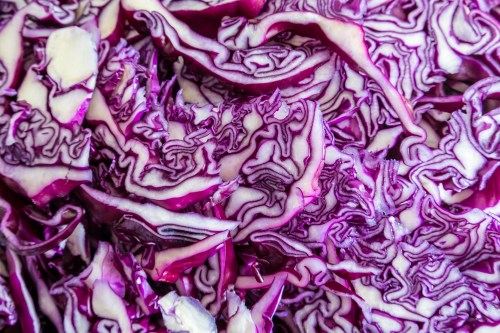Even though the Mediterranean diet is once again basking in the sunny spotlight, plenty of people are Team Keto. The low-carb/high-fat ketogenic diet was the buzziest eating plan of 2018, with advocates raving about how they experienced weight loss, fewer sugar cravings, and even reduced anxiety. Even brands have caught on, crowding the market with “keto-friendly” products that make sticking to the eating plan easier.
Not among the legions of keto fans: registered dietitian Brigitte Zeitlin, MPH, RD, owner of BZ Nutrition. “The keto diet was created by doctors to help treat children with seizure disorders, like epilepsy, from whom medication was no longer working and it was monitored under medical supervision,” she says. “This diet was not intended for generally healthy people to use—and it wasn’t intended for weight loss. The fact that the children were under medical supervision is a pretty good indictor that this diet was not created for the general public to adapt. I was actually really surprised that this form of medical nutrition therapy has become the latest in fad dieting.”
Yet here we all are. While many do say the keto diet has been beneficial for them, Zietlin is wary of anyone sticking to it long-term. Unlike the Mediterranean diet, for example, the ketogenic diet is so new (at least in terms of how people are using it as adults) that scientists haven’t been able to study what the effects are of keeping up with it for a longer period of time. (FWIW, not all experts support going keto for longer than a few months.)
Here’s another RD’s take on the ever-popular keto diet:
The research that does exist is a mixed bag. In 2018, two studies comparing the effects of a low-carb and a low-fat diet had conflicting results: one found that there was no significant difference in weight loss between the two plans over the course of 12 months, the other found that low-carb was better for weight loss. One 2019 study found that people who ate a high-fat diet for a six-month period experienced “unfavorable changes” in their gut microbiome—which could have larger health implications down the road. But again, the long-term research just isn’t there. It might be harmless or even good—but as Zietlin points out, we just don’t know yet.
“This diet was not intended for generally healthy people to use. I was actually really surprised that this has become the latest in fad dieting.” —Brigitte Zeitlin, MPH, RD
Another reason Zeitlin isn’t a fan of keto is its anti-carb slant. “I’m 1000 percent for carbs,” she says. (She’s not the only RD who feels that way, for the record.) “Carbohydrates include all vegetables, fruits, and grains. So with keto, when they are restricting your carbs, that means they are restricting your veggies,” she says. “When have you ever heard of a ‘healthy’ diet that tells you to eat less veggies? If you are debating trying the keto diet, that should be a red flag to you.” Plus, she says that severely restricting your carb intake means losing out on a lot of sources of fiber, which could lead to constipation. Not fun.
To be fair, keto devotees argue that the eating plan does not call for cutting out fruits and vegetables completely, just the high-carb ones, such as corn and potatoes. Some also opt for a more flexible ketotarian diet, which focuses more on non-starchy vegetables, low-fructose fruits, and plant-based fats such as avocado.
All of this said, if you’re currently doing keto and it’s working for you, Zietlin doesn’t want to discredit that. “If you are doing keto and feeling great, then rock on,” she says. “If you are getting the results you want, you’re feeling great, and you’re having regular non-coffee-induced bowl movements, then fantastic—seriously, you found something that works for you. But as a health professional, part of my job is to weigh the pros and cons to any lifestyle plan and assess if this is a good fit for most people on a universal level. And, the keto diet is just not that.” Cue mic drop.
See how the ketogenic diet compares to other healthy eating plans with this A to Z diet glossary. And you know what another pitfall of keto is? Bad breath.
Sign Up for Our Daily Newsletter
Get all the latest in wellness, trends, food, fitness, beauty, and more delivered right to your inbox.
Got it, you've been added to our email list.











